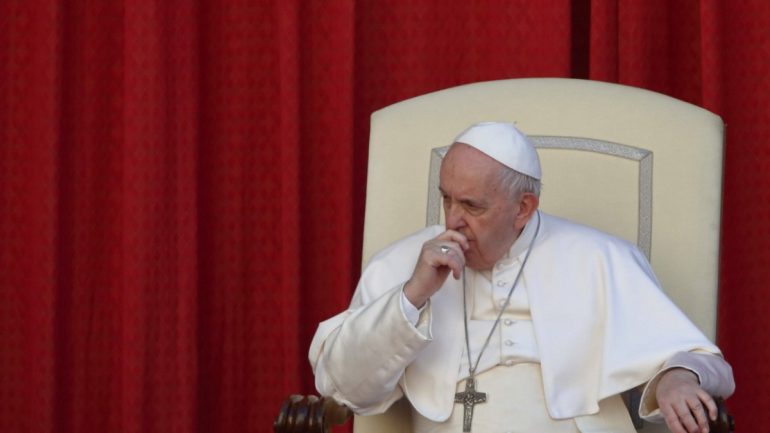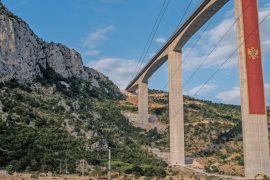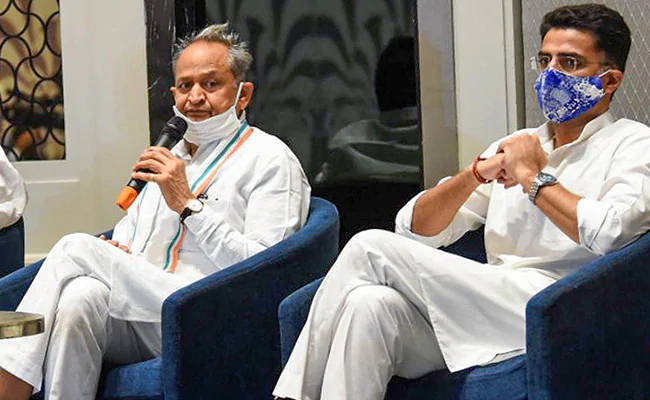Pope Francis appoints his successor – not directly, but with a clearly identifiable signature in the Personnel Policy. In the eighth order of his term, which will bring 21 new cardinals to the Catholic Church on 27 August, again there will be many names from the “periphery”, that is, from regions and countries that have rarely been honored in the past. Centuries had come. For example, the new “pope’s princes” come from East Timor, Ghana, Singapore, India, Nigeria, Paraguay and South Korea. There are many surprises again, men with no known names. But since Francis has always created amazing cardinals, the element of surprise has waned somewhat over the years.
16 out of 21 would be below 80 years of age, which would make them eligible to attend the next conclave. One of them, the Italian Giorgio Marengo, Apostolic Prefect in Ulaanbaatar, Mongolia, is only 47 years old. He will be the youngest voter in the upcoming papal election. The three top men of the Roman Curia who have not yet worn purple are now wearing it, and this was expected. After concurrency, the total number of cardinals would increase to 229. Of these, 132 are of voting age.
Two criteria guide its personnel policy: Perseverance and Commitment
The composition of the committee provides the first indication of who may be next to take over Peter’s chair. Names are already swirling, although guesswork, the so-called “toto-papa”, is neither fair nor believable. But for the first numbers. Of the 132 voters, 38 are from Benedict XVI. Elected, eleven by John Paul II. So Francis has chosen 83 of them. Doing so will have a huge impact on the next conclave. Two criteria guiding them are particularly striking.
The first: Jorge Mario Bergoglio of Argentina, who once presented himself as Pope “from the end of the world” and who focused on caring for all the peripheries of both the geographical and the existential, true to his motto and adjusting the weight. The leadership of the Universal Church also has to be truly global and diverse. As a result, the central dominance of the Italian and European Church peoples is shrinking. In 2013, for the election of Bergoglio, 52 percent of voters were European; After the new composition, it was still 41 percent. Italians form the largest party with 21 of the 132 voters, compared to 28 out of 115 nine years ago. Italy is followed by the United States with ten and Spain with six. Most recently, Africa has 17 electing cardinals, Asia 20, Oceania three, and the entire Americas 38.
Second, when making selections, Francis is not so much interested in the prestige and tradition of the diocese from which potential candidates come. In Italy, for example, six dioceses guaranteeing the cap of a cardinal have passed: Milan, Turin, Genoa, Venice, Naples and Palermo. The only thing the Pope finds more important is that men who have distinguished themselves especially through strong service commitments have been given official positions.
The names are already rolling in. But the forecasts are worth the lottery ticket
Soon after the Fellowship in August, the Pope would gather the cardinals to discuss the new “Constitution” of the Roman Curia. The “Predicate Gospel”, 54 pages long, replaces the Constitution “clergy bonus” from 1988 and will come into force on the coming Pentecost Sunday. Its purpose is to put church headquarters even more in service to local churches and to revive evangelism. Missionary work has become difficult: several abuse scandals have permanently damaged the image of the church.
But now known for some time as Francis, now 85 years old. His knee hurts, in recent times he was often seen with walkers, but seems to have no other disease. Roman Matteo Maria Zuppi, 66, archbishop of Bologna and president of the Italian Bishops’ Conference since last week, is mentioned particularly frequently. Juppi is close to the general humanitarian organization Sant’Egidio and is also referred to as the “Priest of the Last” as he often stands up for the poor and marginalized.
The Vatican’s secretaries of state are always given opportunities: at the moment, 67-year-old Pietro Parolin is also Italian. Luis Tagle, 64, Cardinal of the Philippines, and Sean Patrick O’Malley, 77, Archbishop of Boston, also considered “papabilis”, are eligible for pope. Before a conclave is called, however, such forecasts are usually worth a lottery ticket.

Introvert. Proud beer specialist. Coffee geek. Typical thinker. Pop culture trailblazer. Music practitioner. Explorer.





